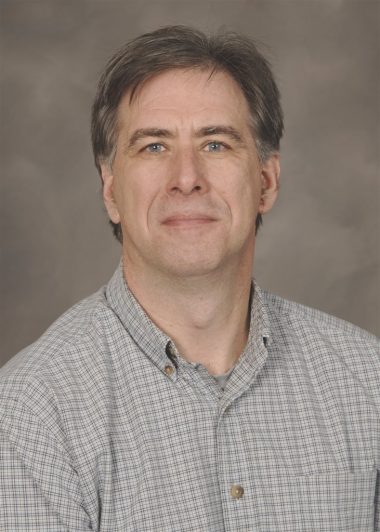Why would white, middle class men and women at the turn of the 20th century emulate Native American customs as a pastime? Clyde Ellis, a professor of history at Elon University, examines the motivations – and consequences – of self-described Indian hobbyist activities in recent scholarship presentations that stem from a book due out next year.

Ellis presented his work in October at the 6th annual Material Culture of the Plains, Prairie and Plateau Conference in Oklahoma City. “We Want to Live Like the Indians: The Early Indian Hobbyist Movement in the United States, 1900-1940” stems from his current book project, tentatively titled “More Indian Than the Indians Themselves: A History of the Indian Hobbyist Movement in the United States.”
To be published by the University Press of Kansas, the book is a history and ethnography that examines how, why and with what consequences white Americans sought to use Indian lore to address social and cultural problems in the later 19th and early 20th century during the Industrial Revolution.
“People thought that Indian lore would help change or improve their lives – they were looking for answers,” he said. “It was this idea of the noble savage. It was easy during that time to look at Indians, to see this romantic stereotype and think that that was the way to live – back to nature.”
Indian themes pervade the era, from operas to pop music to how-to guides. The Boy Scouts, Girl Scouts and the Camp Fire Girls were all founded in 1910, 1912 and 1910, respectively. Nor was the phenomenon limited to the early 20th century. In the 40s and 50s, Nabisco Shredded Wheat featured a series of cards in its cereal boxes that instructed children how to create Indian crafts.
Many thought the Indians were disappearing and that it was their duty to save the cultures. The problem, Ellis explained, is that the movement trapped Indians in the 19th century and defined Native Americans as “real” only if they appear with painted faces, leather fringe and feathers.
“People presume to speak for Indians,” he said. “That tends to silence them and makes it difficult for people to take things seriously and realize that Indian people are fully modern. Hobbyists try to speak for them, but it often contributes to the stereotypes that we get today. We assume they have no modern culture, but that’s just not true.”
Ellis also studies the way Indian culture has maintained distinct in the face of a multitude of political and social pressures to abandon heritage and traditions.
“Tradition is always shifting,” he said, as he sits in an office covered in photos him with Kiowa friends and his family of Indians who adopted him and accepted him into their lives. “It’s easy to look at Indians and see the stereotype. It’s harder to look and see the multiple layers of identity that is their culture.”
Ellis had already developed a deep interest in Indian culture by the time he took his first trip to Oklahoma, which he calls the mecca for powwow people, with the Boy Scouts in 1977. “I realized that what I had been learning was idealized,” Ellis said. “It just blew me away and I just decided that’s what I wanted to do and study.”
Ellis received his doctoral degree in Indian Studies from Oklahoma State in 1993 where he wrote his dissertation on federal Indian boarding schools. His first book was also about the boarding schools. He has also written books on powwow culture and native Christianity. He is interested in understanding how Indian people have combined traditional values with change and adaptation.
Ellis’s current book project is his sixth since coming to Elon in 1994. He served as a grant evaluator for the National Endowment for the Humanities and the Guggenheim Foundation and has been a consultant to the Smithsonian’s new National Museum of the American Indian.
At Elon, Ellis has won both the University Distinguished Scholar Award and the College of Arts and Sciences Distinguished Scholar Award.
– Bethany Swanson ’09


